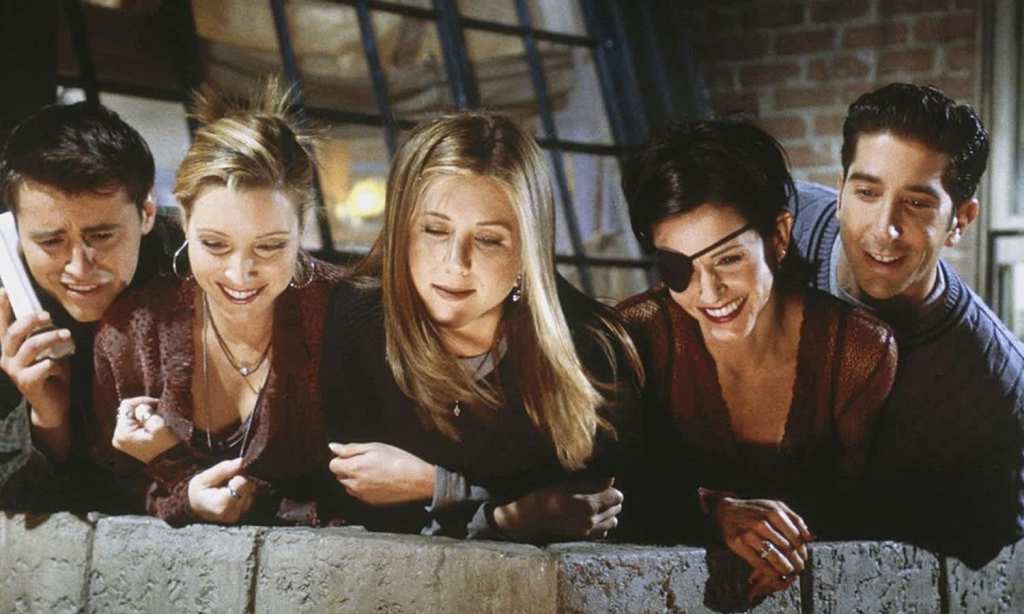I love watching new TV series’. Taking in new shows with my partner and discussing everything about them — from the characters to the soundtrack — is one of my favourite ways to spend time together after a long day, and something I find so blissfully enjoyable.
But given a spare moment to myself, be it the time I spend doing my makeup in the morning or an evening when I’m home alone, I will almost always resign to watching Gossip Girl on Netflix — despite the fact I’ve seen the entire series through an estimated eight times (a conservative guess).
And I am not alone. Each of us here at TheLatch— admit we revert to series’ we’ve all seen time and time again as background watching and usually while we’re multitasking. For our executive editor Amanda Bardas, it’s Friends. For entertainment editor Anita Lyons, it’s Hart of Dixie. And all three of us at a stage have found ourselves in continuous loops of The Office, Sex and the City, and The OC.
I don’t know exactly what it is about re-watching shows that comforts me so. My hypothesis as to why I do it is because I find the predictability and the fact that I’m never shaken up by what goes down as somewhat soothing. A bit how looking at pictures of Mary-Kate and Ashley smoking is soothing for some, as recently pointed out by Vulture.
I think we re-watch nostalgic shows to find comfort in a world we really have no control over, and perhaps particularly during times of turbulence. I’ve long held this opinion and have engaged in many discussions with friends about this, but when I recently came across this opinion piece from SMH, which compared our frequently re-watched TV shows to security blankets for children, I knew my theory had some merit.
But of course, I am no expert. So on a mission to uncover a little bit more about the phenomena we’re calling Security Blanket Television (or SBTV), I reached out to Kevin Vun, psychotherapist and counsellor at The Indigo Project to find out his thoughts.
This is what he had to say.
Katie Skelly: Is Security blanket TV a thing? And if so, why do you think we gravitate towards re-watching shows we’ve seen many times before as a way to comfort ourselves?
Kevin Vun: Security blanket TV is most certainly a thing. In fact, I speak to a lot of clients who use TV as a means to relax, destress, and unwind.
The feelings we have re-watching a TV show can be comforting, and particularly when we re-watch shows we first viewed at a younger stage in life if we found this to be a simpler time for us.
At this stage, there is limited scientific research around the effects and true purpose of SBTV, but from a clinical perspective, we consider re-watching and watching TV shows as a self-care tool to elicit emotions and help us unwind, which is healthy.
KS: Is watching a lot of SBTV healthy for us? I may or may not be in the double digits on my rewatch count of Gossip Girl at this stage…
KV: That’s really a question we need to ask ourselves.
If we use it as a means to unwind, relax, and enjoy our time? Well, that sounds healthy to me. But if we are using it to avoid certain situations in life and it’s impacting us or people around us, maybe not.
The other component to consider on a larger scale is that fictional content is indeed fictional, and if we allow our watching to impact our lives in a way that could be detrimental to how we view ourselves and the environment we are in, then perhaps this isn’t so healthy either.
KS: Should we be branching out and watching new things instead? I sometimes feel guilty that I’m not using my time better to listen to podcasts or read books…
KV: Haha, don’t we all. Sure, we could spend our SBTV time listening to podcasts about things that better us, but if SBTV is thought of as the self-care tool we’ve established it to be, then what’s the harm?
If you are experiencing guilt for the time you spend watching your shows, then I would suggest setting aside some dedicated ‘self-development’ time, in which you endeavour to watch something new, listen to a new podcast, or develop a new skill. Start off small like any new habit; one new podcast a week, or one new tv show a week, until this becomes a habit.
But most importantly, remove the guilt and the negative self-talk. There is a fine line between being firm and honest, and being harsh and critical. If you don’t find it important to branch out, then don’t!
—
And there it is: What I was hoping to get out of this interview all along. Kevin Vun, a legit psychotherapist, has given me, and by proxy, you, permission to rewatch Gossip Girl forever.







